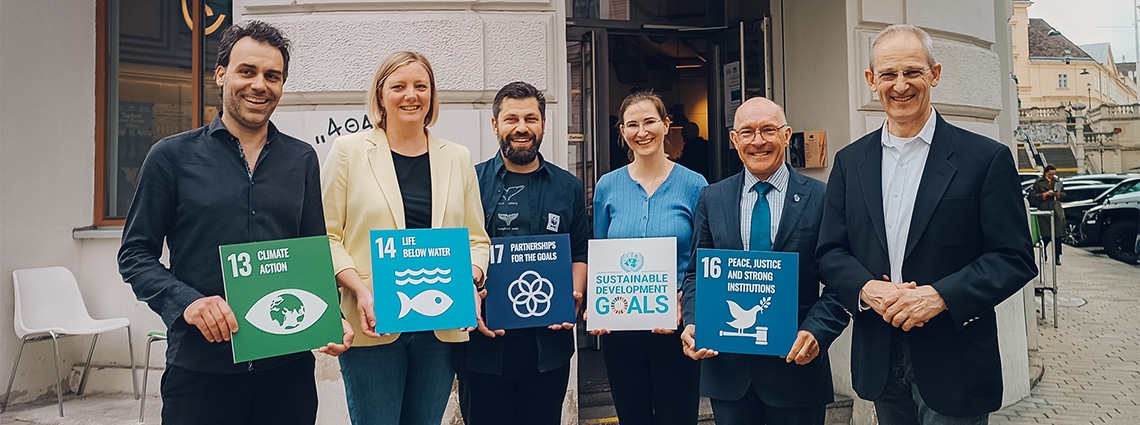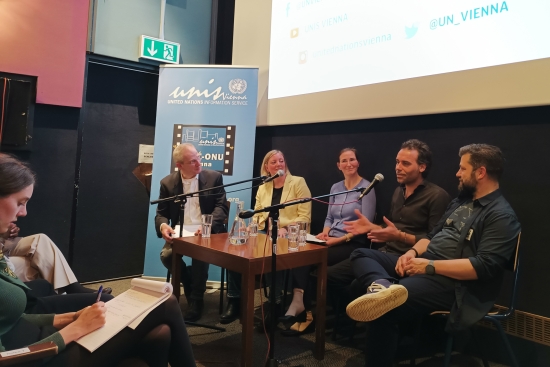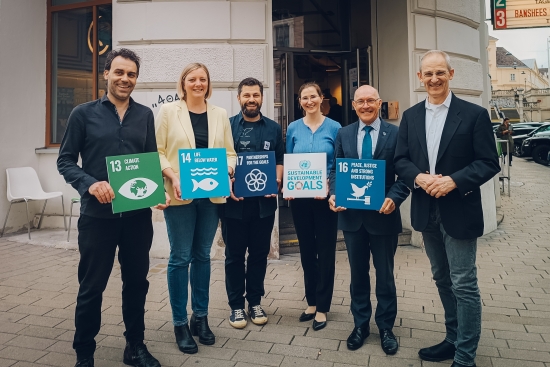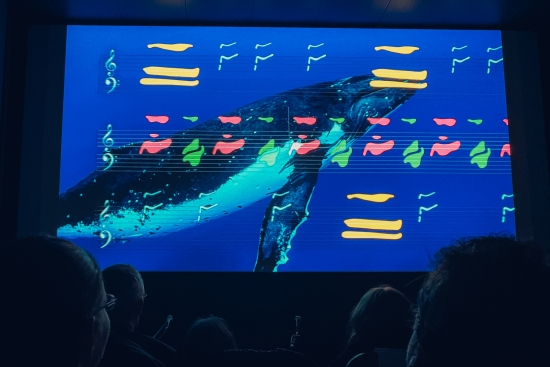UNIS and CTBTO screen Loneliest Whale film, hold panel discussion
To mark International Mother Earth Day, the United Nations Information Service (UNIS) hosted a screening of the Loneliest Whale: The Search for 52 in cooperation with the Comprehensive Nuclear-Test-Ban Treaty Organization (CTBTO).
The event took place at Top Kino in the Austrian capital as part of Ciné-ONU, a Europe-wide initiative that presents films on UN-related topics followed by panel discussions.
Speaking to a packed auditorium on 17 April 2023, CTBTO’s Executive Secretary Robert Floyd introduced the 96-minute-long documentary, highlighting the Organization’s role in protecting the world from nuclear weapons tests: “Our Treaty's verification regime includes hydroacoustic sensors that can detect any nuclear test conducted beneath the ocean's surface. The data collected from these sensors can also be used for scientific research in biology and environmental protection”.
"It was our data that recently helped identify a new sub species of whale in the Indian ocean. Our sensors heard it, directed scientists to the location and then it was discovered… As a biologist by trade, this topic is of great personal interest to me”, added Floyd.
The opening remarks of the CTBTO head were followed by the screening of the film, produced by Leonardo DiCaprio and Adrian Grenier, and directed by Joshua Zeman.
The documentary takes the audience on a captivating journey to uncover the mystery surrounding the 52 Hertz Whale. This enigmatic creature emits calls at a unique frequency of 52 Hz, which other whales are unable to recognise, leading many to believe it has spent its entire life in solitude.
After the screening, UNIS Director Martin Nesirky moderated a discussion with a panel of experts, including Pedro Frade - a curator of invertebrate zoology (Natural History Museum Vienna), Jillian Petersen - associate professor (University of Vienna), Axel Hein - marine expert (WWF Austria), and Megan Slinkard - chief of software applications section (IDC/CTBTO).
Slinkard leads the team responsible for developing scientific methods to analyse data received from the CTBTO’s International Monitoring System (IMS). They also develop and maintain the software used to process this data.
“As mentioned by the Executive Secretary, our treasure trove of data – used to detect nuclear explosions - has the potential to support a variety of civil and scientific applications, including life-saving initiatives. It is available to all signatories of the Treaty. Scientists and researchers can also request access to it through the Organization’s virtual Data Exploitation Centre (vDEC)”, Slinkard explained.
Slinkard is scheduled to present on the various uses of this data at CTBTO’s upcoming Science and Technology conference (SnT2023), which is currently open for registration. The hybrid event will cover diverse themes, including the Earth as a complex system, events, and nuclear test sites, as well as monitoring and on-site inspection technologies, among others - bringing together over 1000 policymakers, scientists, technologists, and academics.
As the expert panel concluded in Vienna’s 6th district, several speakers addressed the impact of climate change on marine life, including whales. Hein of WWF Austria remarked: “Climate change is human driven. Everyone can make a difference, even in small ways, such as reducing fish consumption or using public transportation. We will not stop trying until we succeed".

Audience listening to panel discussion
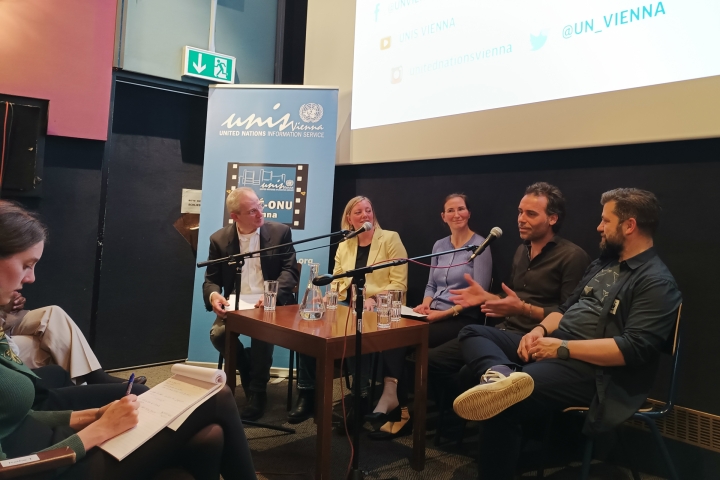
Panellists during podium discussion (Left to right): Nesirky, Petersen, Slinkard, Frade and Hein
19 Apr 2023
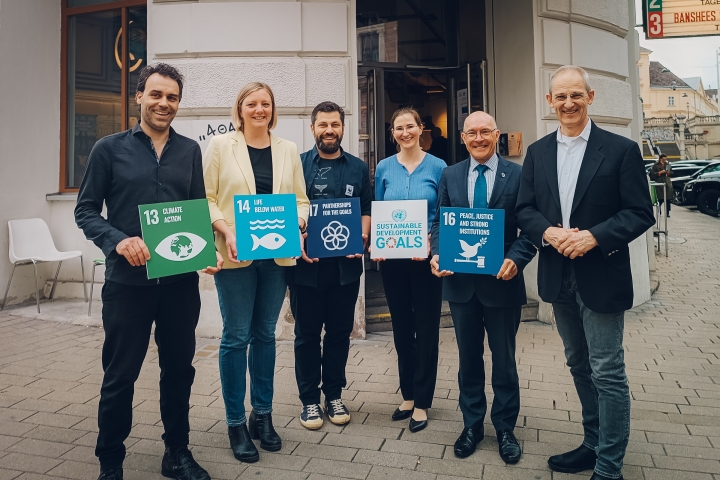
Panellists and speakers outside Top Kino cinema in Vienna, Austria

Exterior of the Top Kino cinema in Vienna, Austria

Executive Secretary Robert Floyd delivering opening remarks
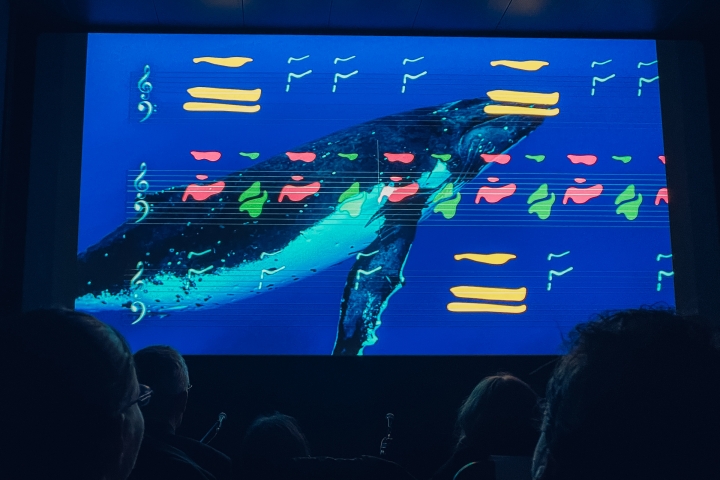
Clip of documentary displaying whale call frequencies as musical notes
